Motorcycle Investor mag
Subscribe to our free email news
Our bikes: MV Agusta F4 1000 Nero
(by Guy 'Guido' Allen, updated March 2025)
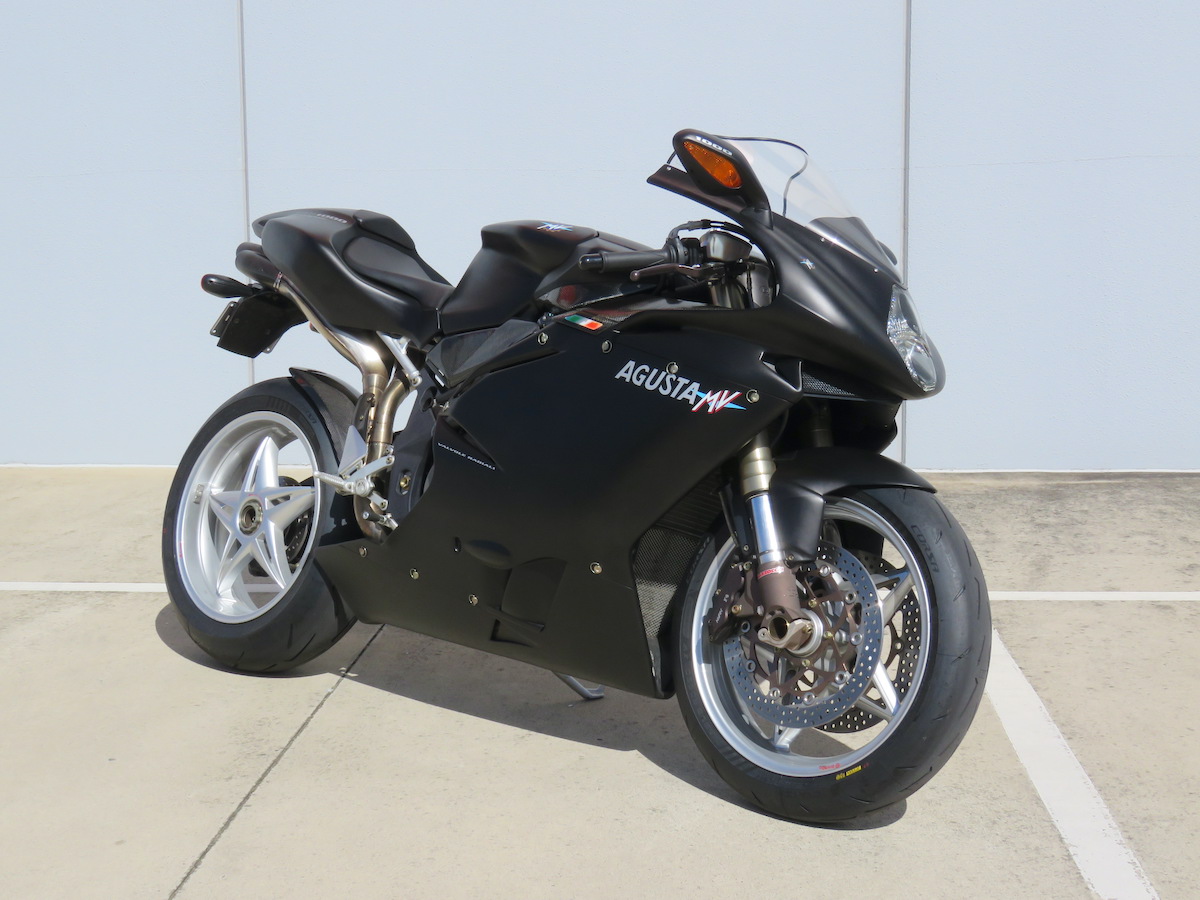
It was an entertaining week in the Chateau Guido shed, with the newly-acquired 2006 MV Agusta F4 Nero finally getting on the road and establishing itself as the angle grinder in the fleet
It's fair to say that things were a
little out of control in the shed at the time, just a
couple of years ago, and I had been falling behind on jobs
– in a good way of course.
You see I had been on a bit of an
acquisition spree and, without going into all the ugly
detail, one of the top priorities has been getting the MV
Agusta F4 back on the road after a relatively brief
lay-off with the previous owner. In lovely condition with
just over 3000km on the odo, it was acquired from old mate
Roger.
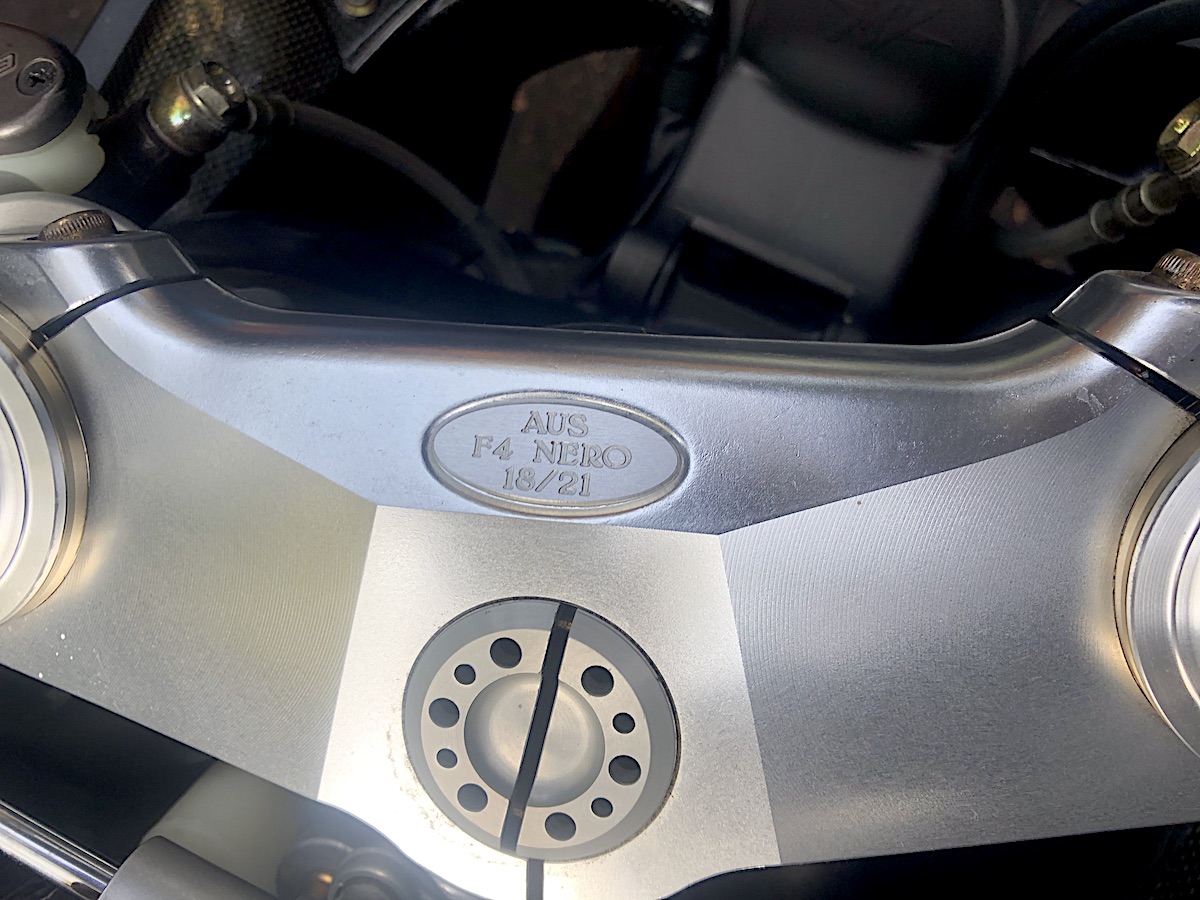
It's a rare variant known as a Nero. Then
local importer Paul Feeney spotted a niche for a satin
black F4 1000 S, which wasn't in the model line-up at the
time. MV obliged by building 21 Neros for Australia only,
a mix of mono- and bipostos. Other than the paint, and the
plaque on the steering head, they were standard F4s. (See the
contemporary New Atlas story on the announcement.)
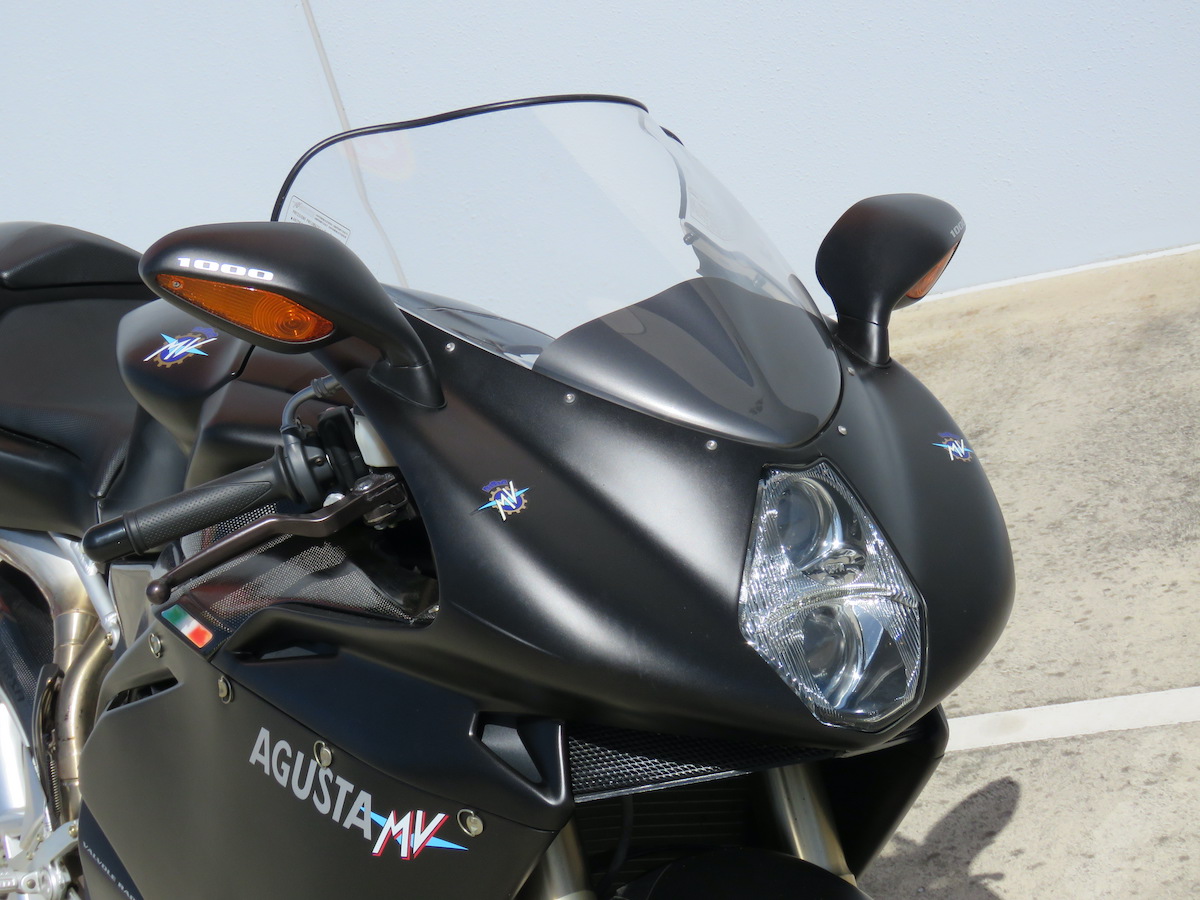
Aside from needing fresh rubber (it was
on the original tyres) a few little things needed looking
at. We're generally talking giving it a birthday with new
fluids and a check-over.
You have to love the minor irritations
that come your way, such as a flaky left front indicator.
The front units are in the mirrors, which are a work of
art and a delicate pain in the arse to work on. In this
case contacts were troublesome. Of course moments after it
sailed through the roadworthy test, it went on the blink
again (or not, if you'll pardon the pun...). No matter –
something to be sorted one quiet morning over a cup of
tea.
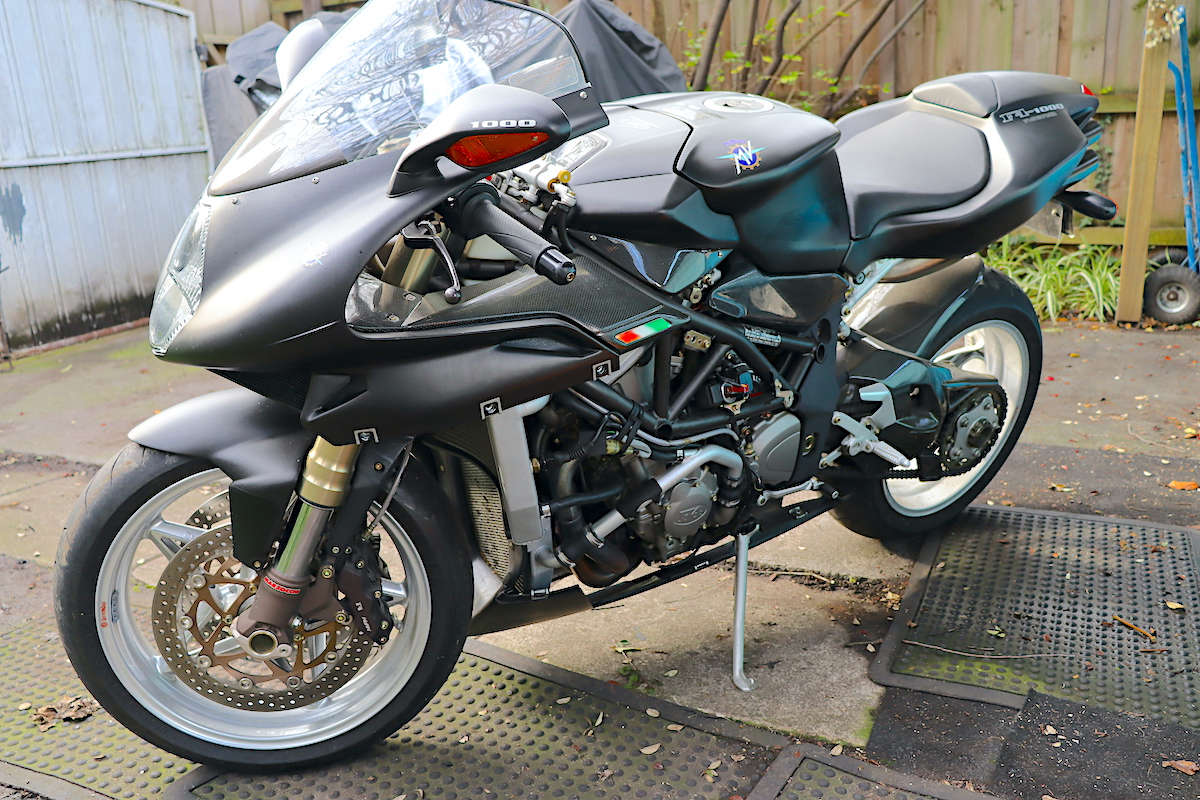
While I was chasing some other minor issue, I had cause to remove the left fairing panel. Access is incredibly easy, with a set of Dzus fasteners, and the whole thing comes off in a couple of minutes without resorting to tools. In fact, it's very much like a Ducati 916 to work on, right down to the flip-up seat/tailpiece. Hardly surprising, since both were designed by Massimo Tamburini.
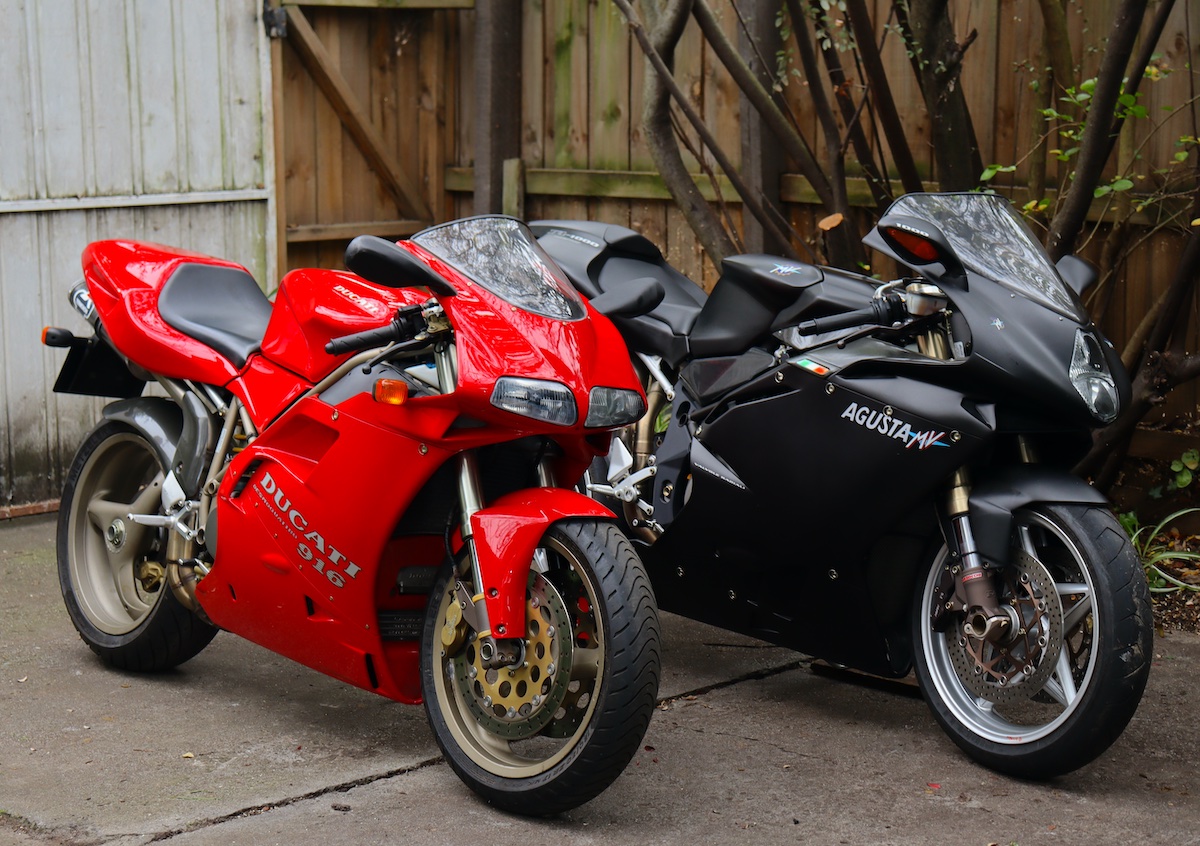
Speaking of Tamburini and design, like
the 916 the ride position on the F4 is set up for a racer
stance for more compact folk. Author Ian Falloon assures
me Tamburini was about 5'6" (168cm), which may well have
influenced his product.
If you're tall, Falloon says the go is to
get a 999 series designed by
Pierre Terblache, who is more like 6'1" (186cm) and
built a lot more adjustability into that series.
Right, so having got this far are there
any conclusions? One or two.
It was over a decade since I last rode an
F4 of any sort (750 or 1000) and I'd forgotten just how
tiny they feel. The ride position is pure head-down bum-up
sports.
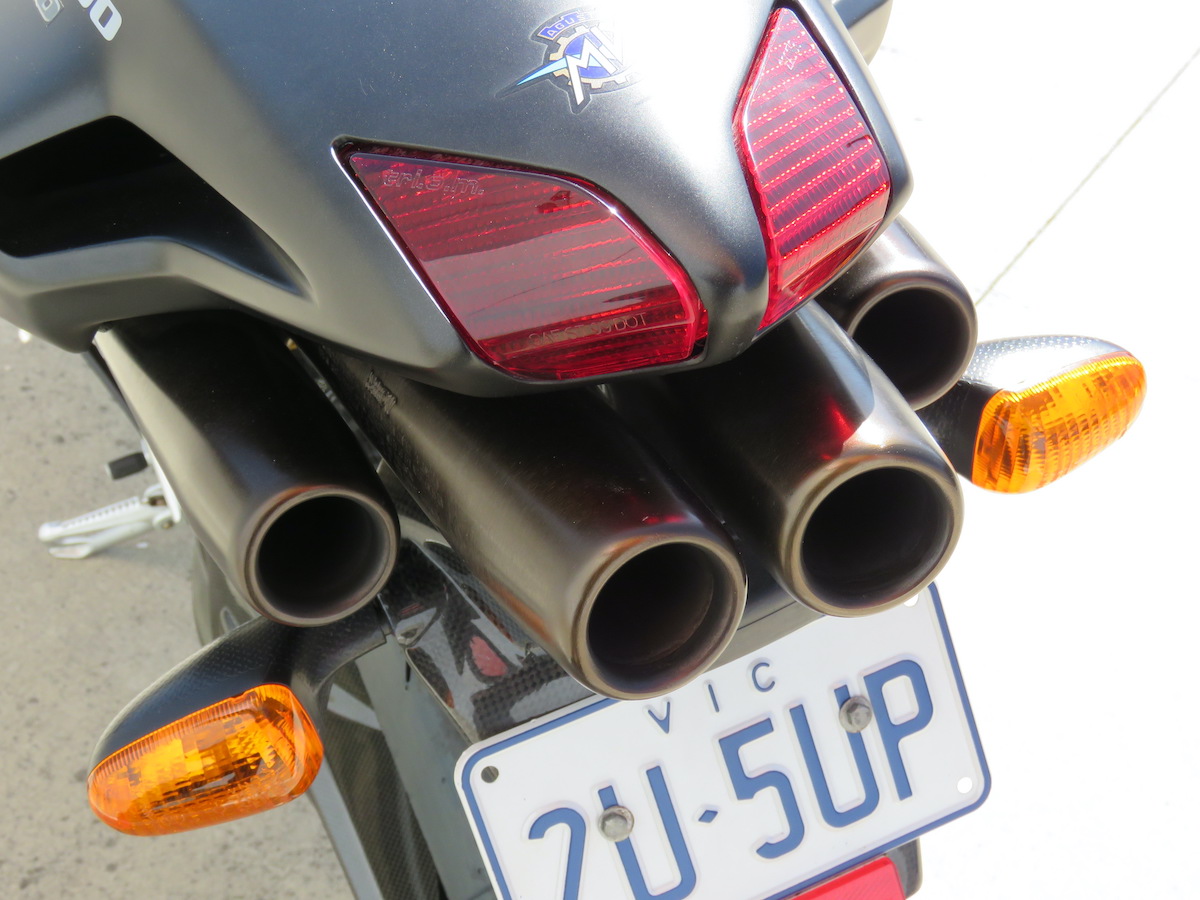
However once you fire it up and have a
play, comfort is pretty low on the mental list of needs.
Survival and engagement take precedence.
It makes a wonderful howl from the
distinctive high-mounted four tailpipes and there's enough
horsepower to keep your heart rate up near the redline.
It's light and sharp and tactile.
The throttle response is aggressive and
it feels like there is sod-all flywheel, so the connection
between that reptile part of your brain and the road is
very immediate. It likes revs to get away and there's
something about it – maybe the hackle-raising note from
the pipes – that just says you need to be on your toes to
ride it.
While not the most powerful bike in its
class, it is quick enough: 166 horses (122kW) in a 190
kilo package can flatten your eyeballs.
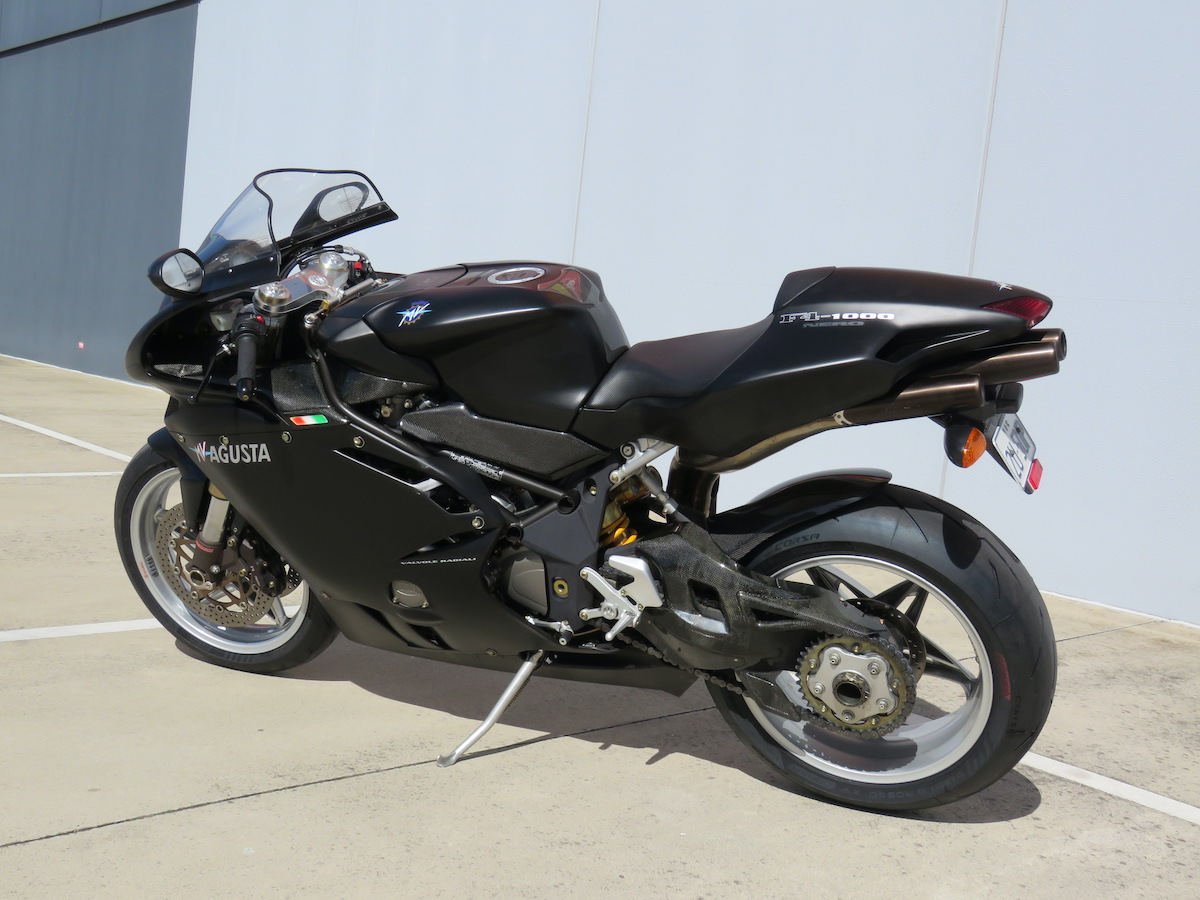
Steering is quick and sharp, while the
fully-adjustable suspension is responsive so long as you
have the settings right for the road. Braking is
ultra-strong with loads of feel, and there is no ABS. In
most respects it is by current standards a very analogue
motorcycle – which has its own appeal.
Like the bikes I rode from the launch of
the first 750 F4 circa 2000, and the litre bikes in the
ensuing years, it is a very capable and single-minded
sports motorcycle. Given the fierce competition in this
sector at the time, it rarely won comparos, but in
isolation it was a fast, responsive, and
attention-grabbing platform.
Much of its charm is in the beautifully
integrated and delicate design, with a host of little
styling 'easter eggs' around the bike to make the owner
feel good about their purchase. It looks bloody wonderful
when you survey it over a post-ride glass of wine...
***
See our feature
on the MV Agusta revival model, the 750 F4 from the late
1990s.
***
Good
Fast
Stylish
Handles well
Bad
Extreme sports riding position
Spares availability is patchy
SPECS:
2006 MV Agusta F4 1000S Nero
ENGINE:
TYPE: Liquid-cooled, 4 x radial valves per cylinder,
inline four
CAPACITY: 998cc
BORE & STROKE: 76 x 55mm
COMPRESSION RATIO: 12.0:1
FUEL SYSTEM: Weber Marelli EFI
TRANSMISSION:
TYPE: Six-speed, constant-mesh,
FINAL DRIVE: Chain
CHASSIS & RUNNING GEAR:
FRAME TYPE: Steel trellis and aluminium castings
FRONT SUSPENSION: 49mm USD cartridge telescopic fork, full
adjustment
REAR SUSPENSION: Monoshock, full adjustment
FRONT BRAKE: 310mm disc x 2 with 6-piston Nissin calipers
REAR BRAKE: 210mm disc with 4-piston Nissin caliper
DIMENSIONS & CAPACITIES:
DRY WEIGHT: 190kg
SEAT HEIGHT: 830mm
WHEELBASE: 1408mm
FUEL CAPACITY: 17lt
TYRES:
FRONT: 120/70-17
REAR: 190/55-17
PERFORMANCE:
POWER: 122kW (166hp) @ 11,750rpm
TORQUE: 109Nm @ 10,200rpm
TOP SPEED: 295kph (183mph)
NEW PRICE: $32,990 (US$22,000, GB£16,000)
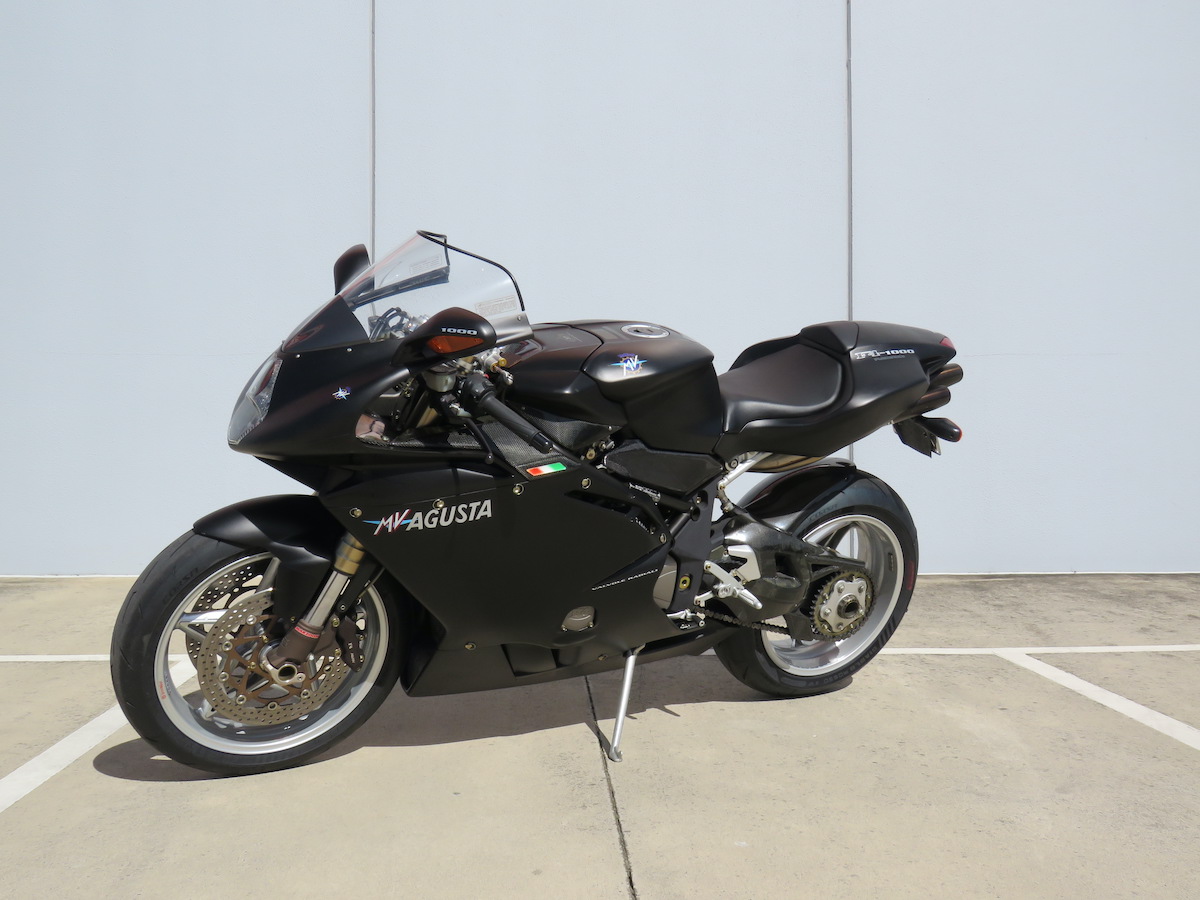
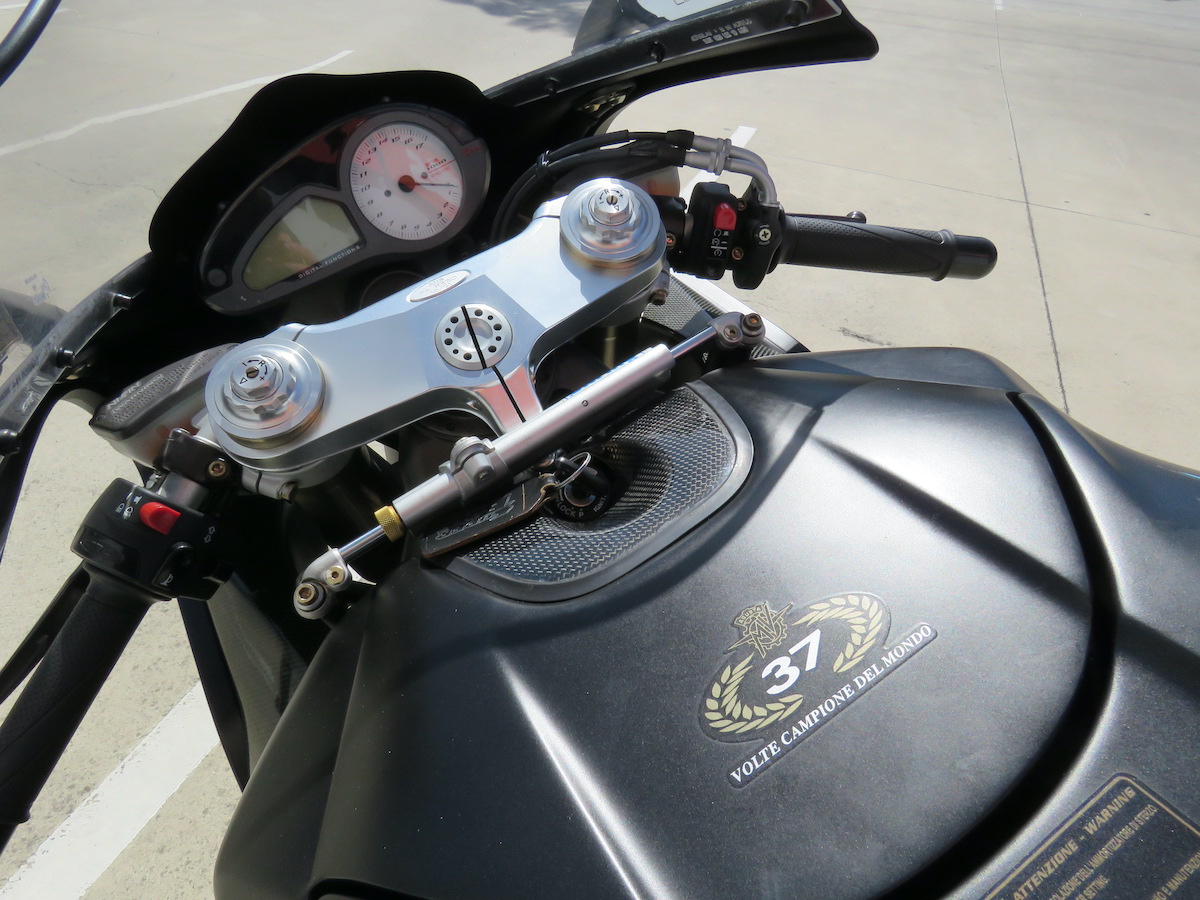
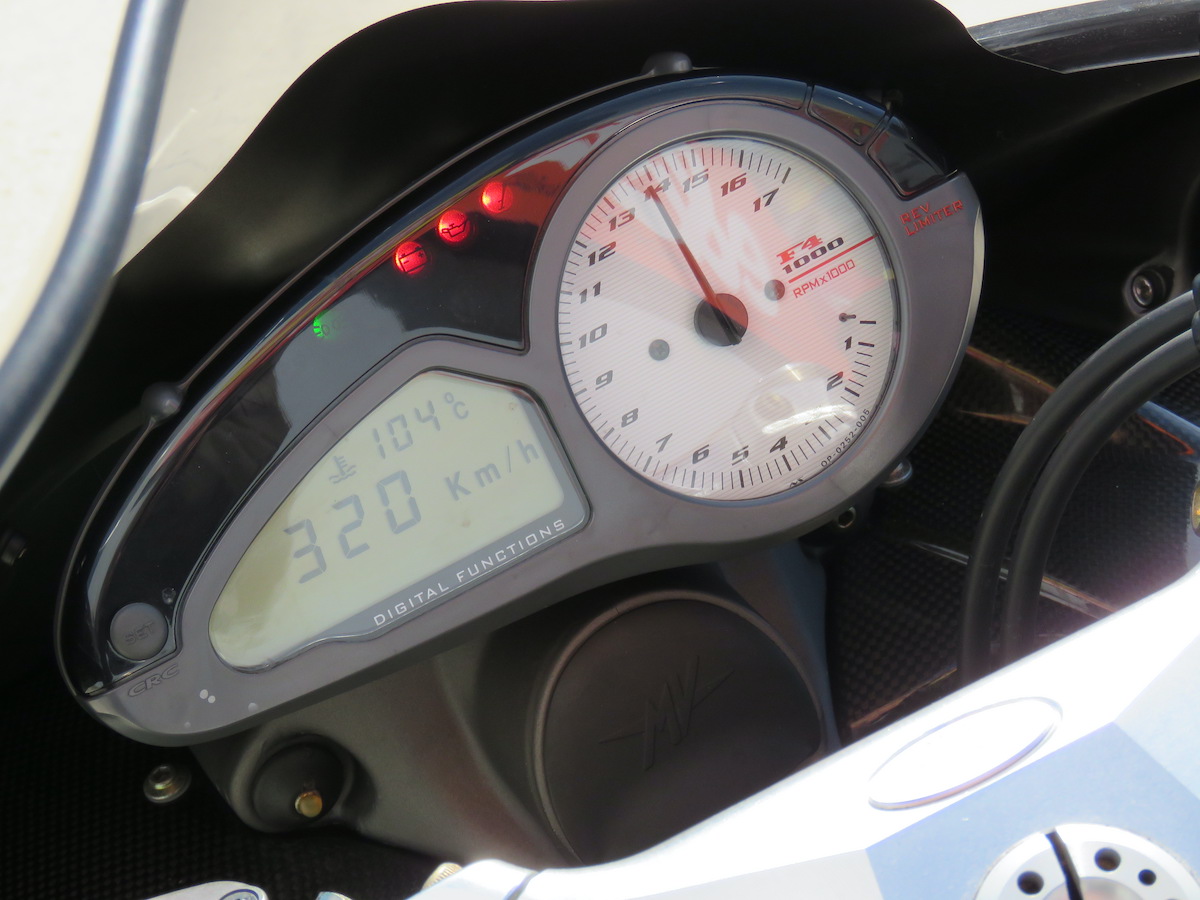
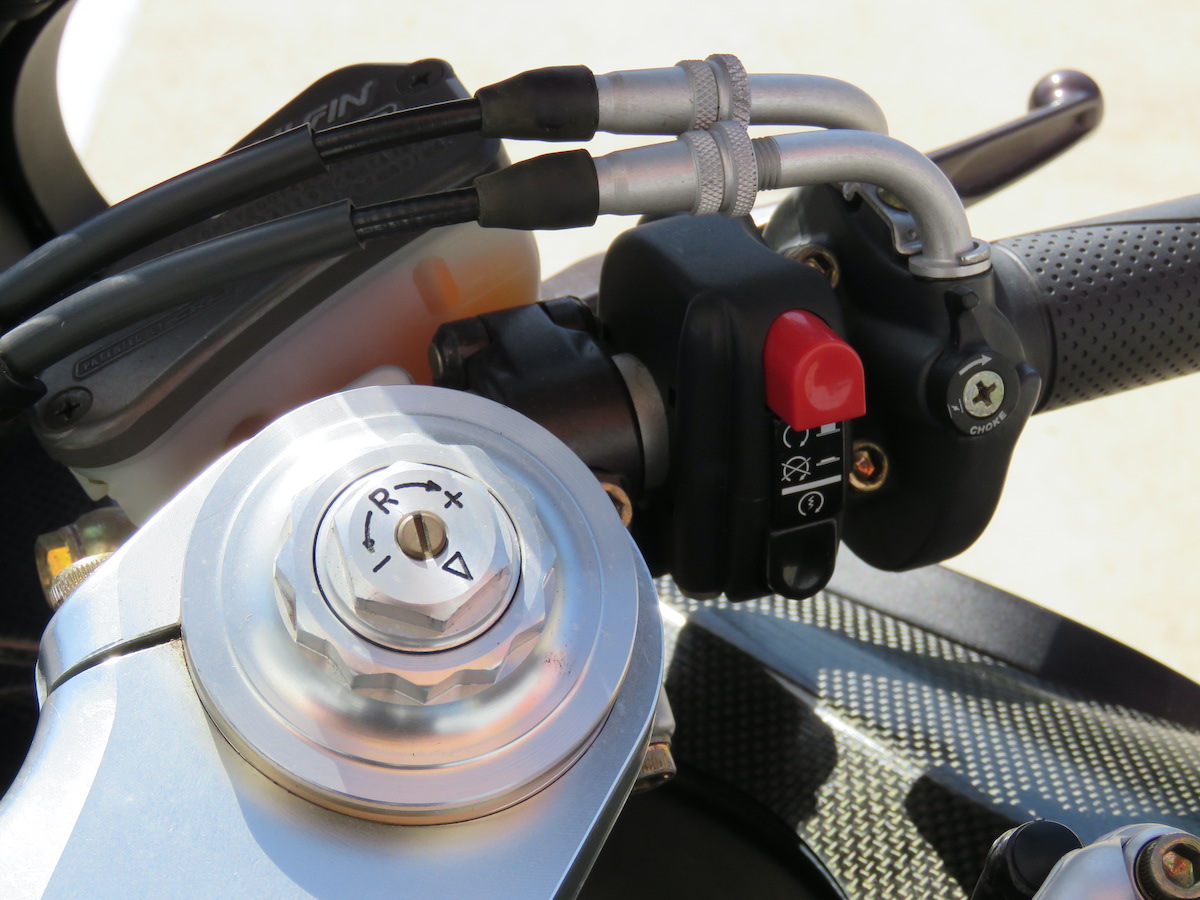
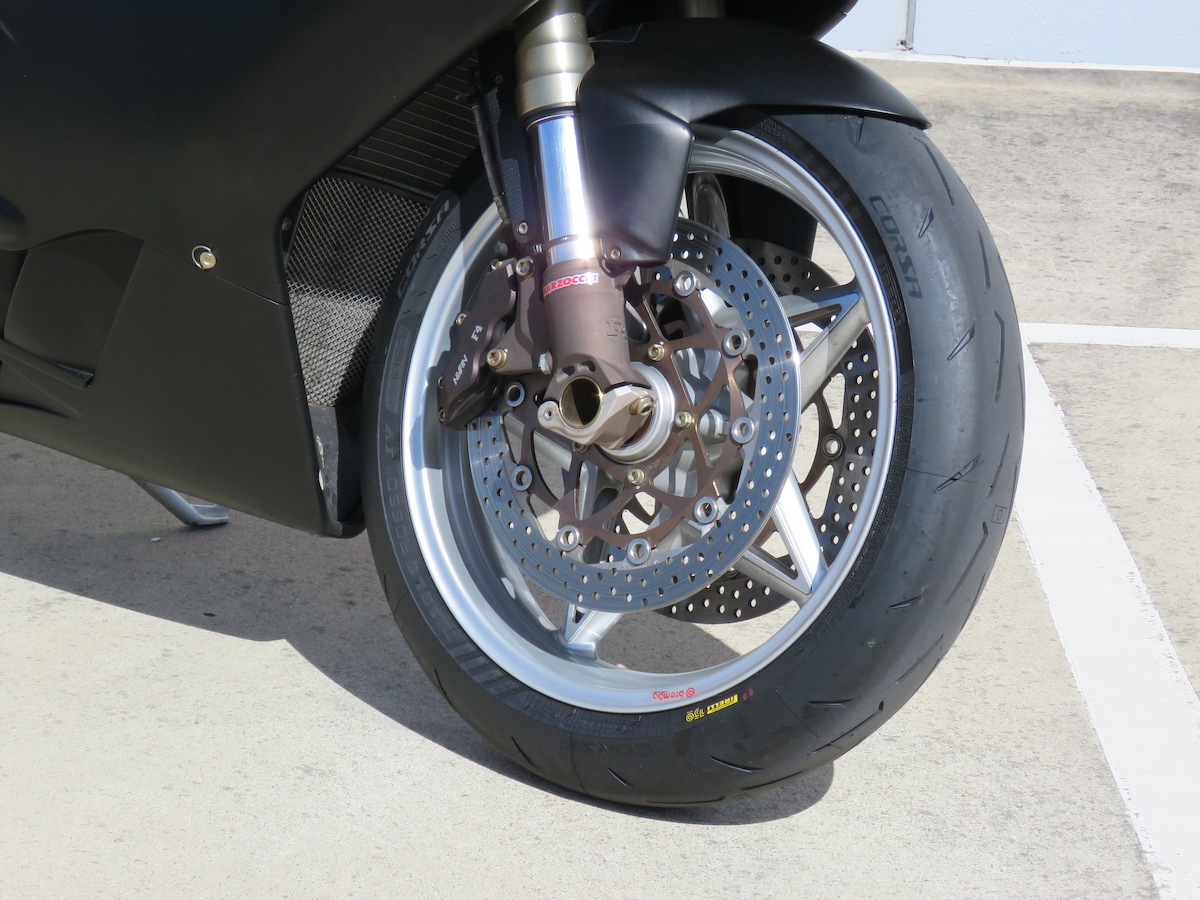
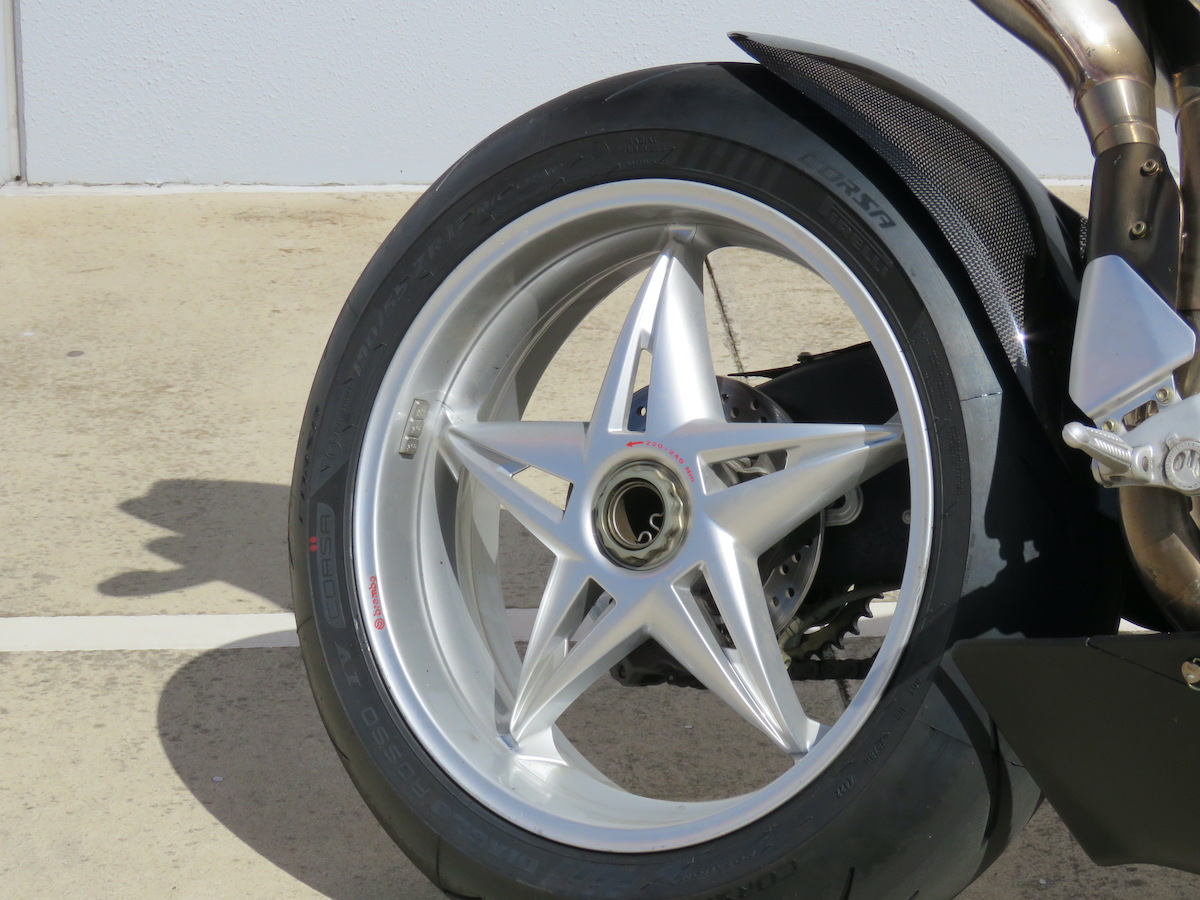
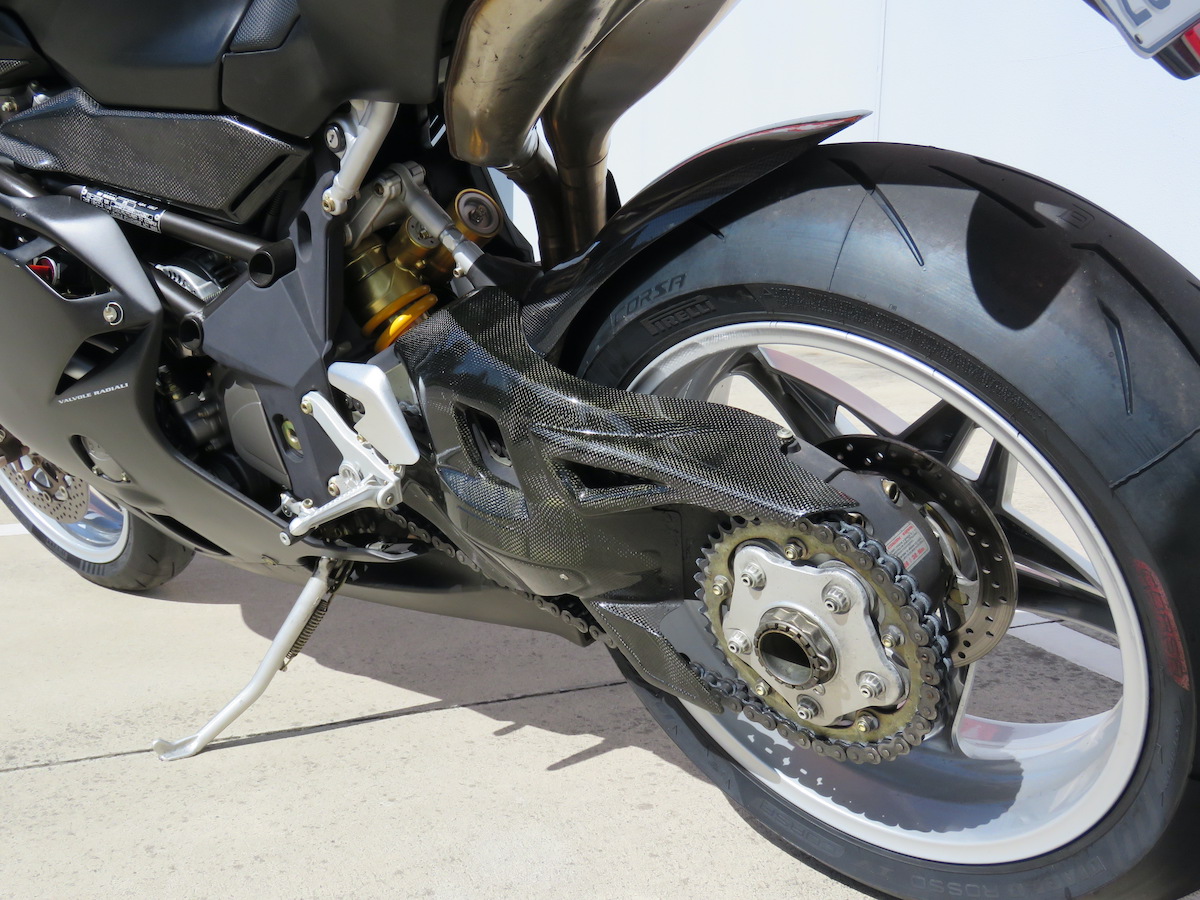
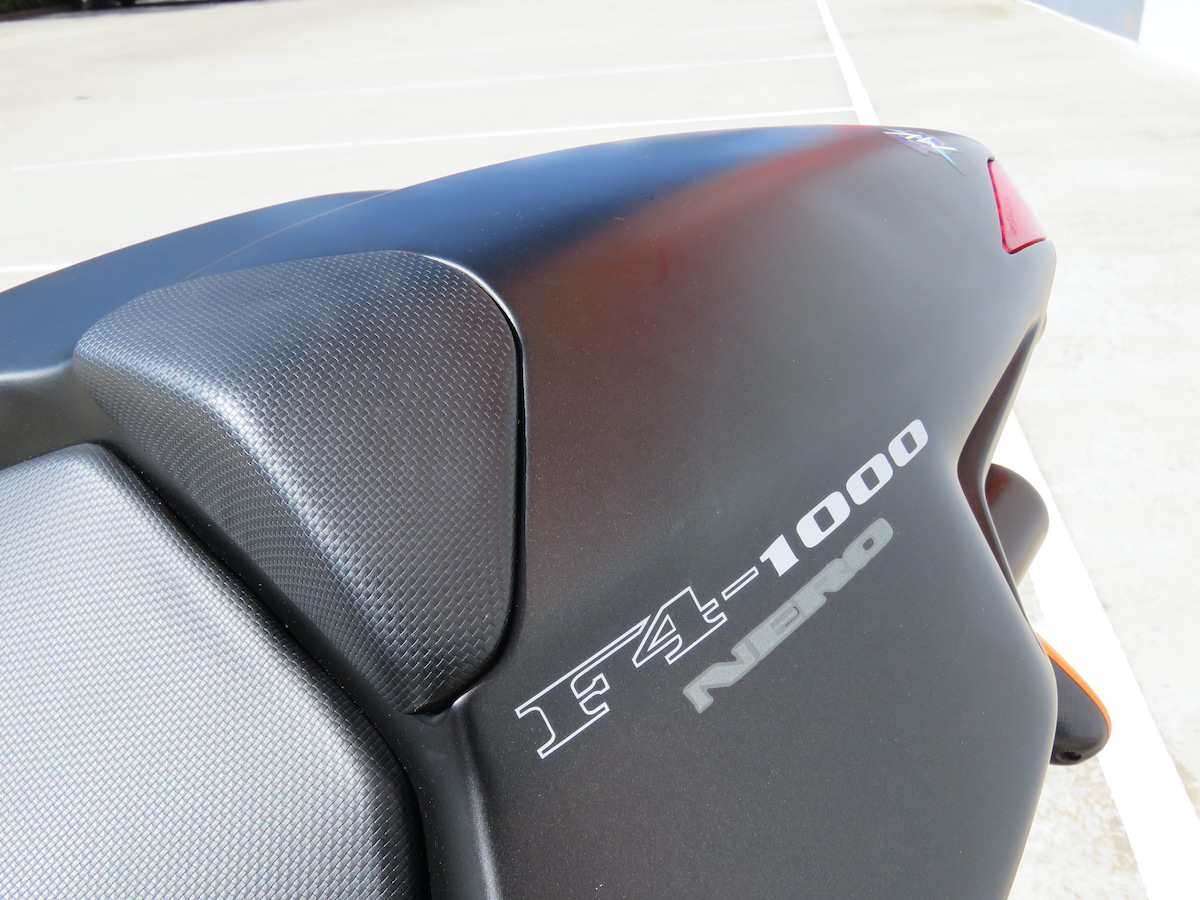
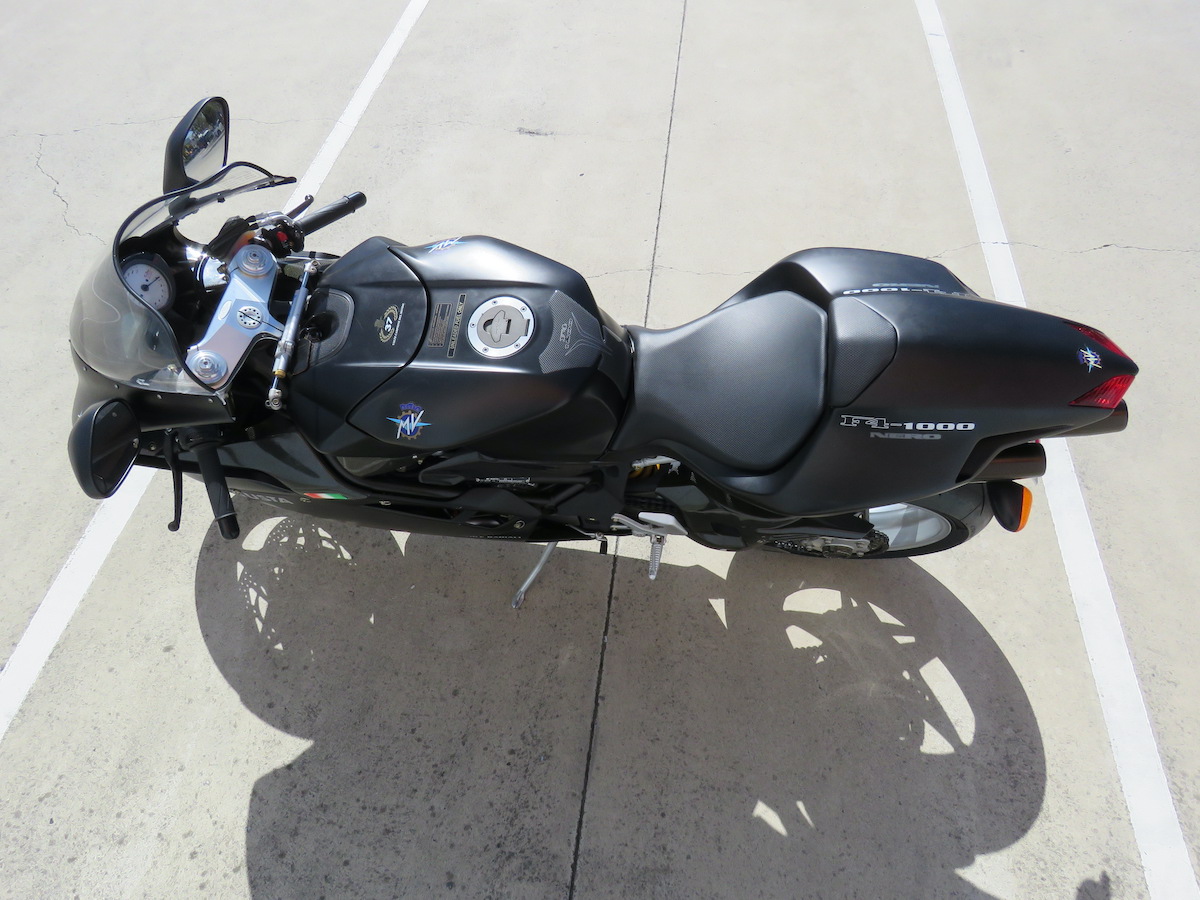
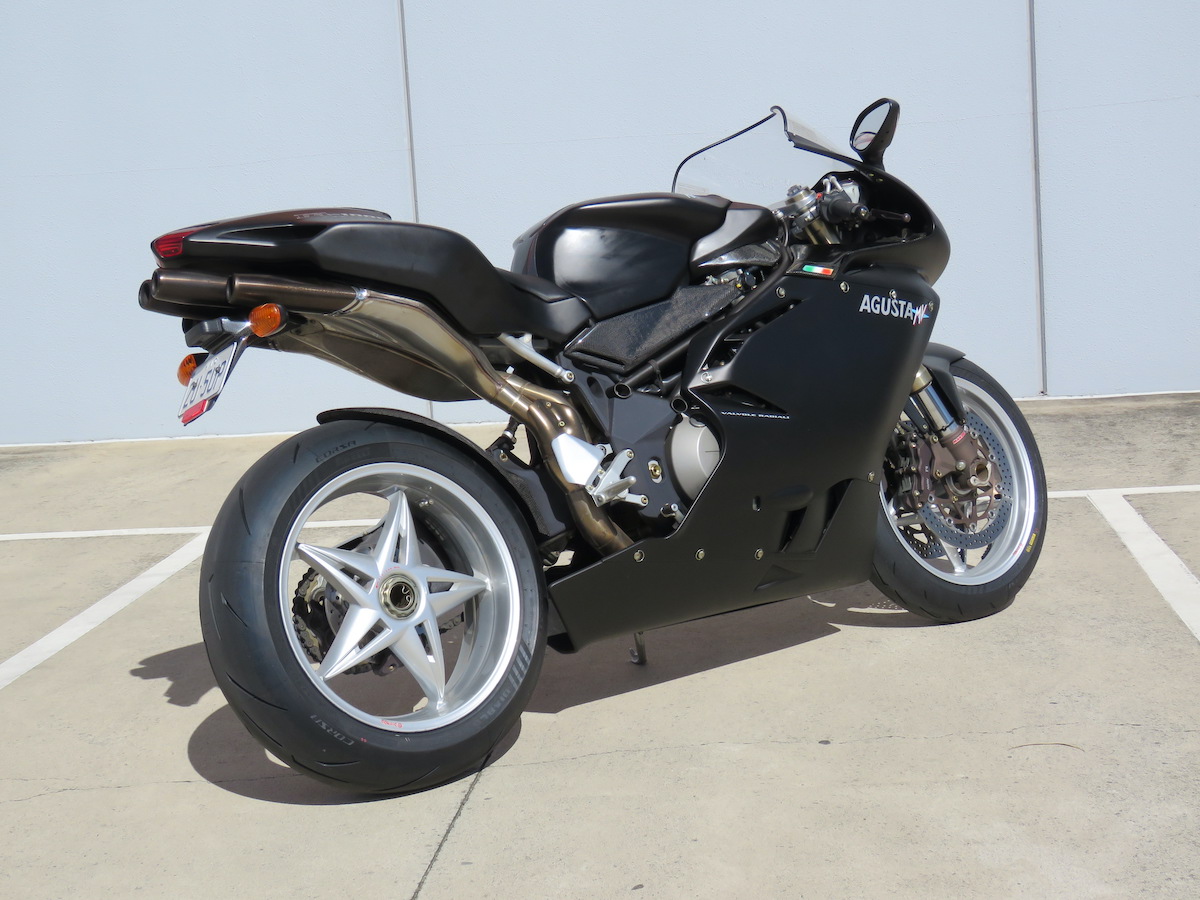
Specs: 2006 MV Agusta F4 1000 Nero
Australia-only model – 21 made
Good
Tamburini
style
Sharp
handling
Fast
Not
so good
Dedicated
sports ride position
Cosmetic
spares difficult to source
ENGINE:
TYPE:
Liquid-cooled, radial four-valves-per-cylinder, inline
four
CAPACITY:
998cc
BORE
& STROKE: 76 x 55mm
COMPRESSION
RATIO:
12.0:1
FUEL
SYSTEM: Weber Marelli EFI
TRANSMISSION:
TYPE:
Six-speed, constant-mesh,
FINAL DRIVE: Chain
CHASSIS
&
RUNNING GEAR:
FRAME
TYPE: Steel trellis, aluminium swingarm plates
FRONT
SUSPENSION: Marzocchi 50mm USD telescopic fork, full
adjustment
STEERING
DAMPER: Ohlins
REAR
SUSPENSION: Sachs monoshock, full adjustment
FRONT
BRAKE: 310mm discs with six-piston Nissin F4 calipers
REAR
BRAKE: 210mm disc with four-piston Nissin caliper
DIMENSIONS
&
CAPACITIES:
DRY
WEIGHT: 190kg
SEAT
HEIGHT: 830mm
WHEELBASE:
1408mm
FUEL
CAPACITY: 21lt
TYRES:
FRONT:
120/65-ZR17
REAR:
180/55-ZR17
PERFORMANCE:
POWER:
122kW (166hp) @ 11,750rpm
TORQUE:
109Nm @ 10,200rpm
OTHER
STUFF:
PRICE
WHEN NEW Au$32,990 (US$21,000, GB£17,000)
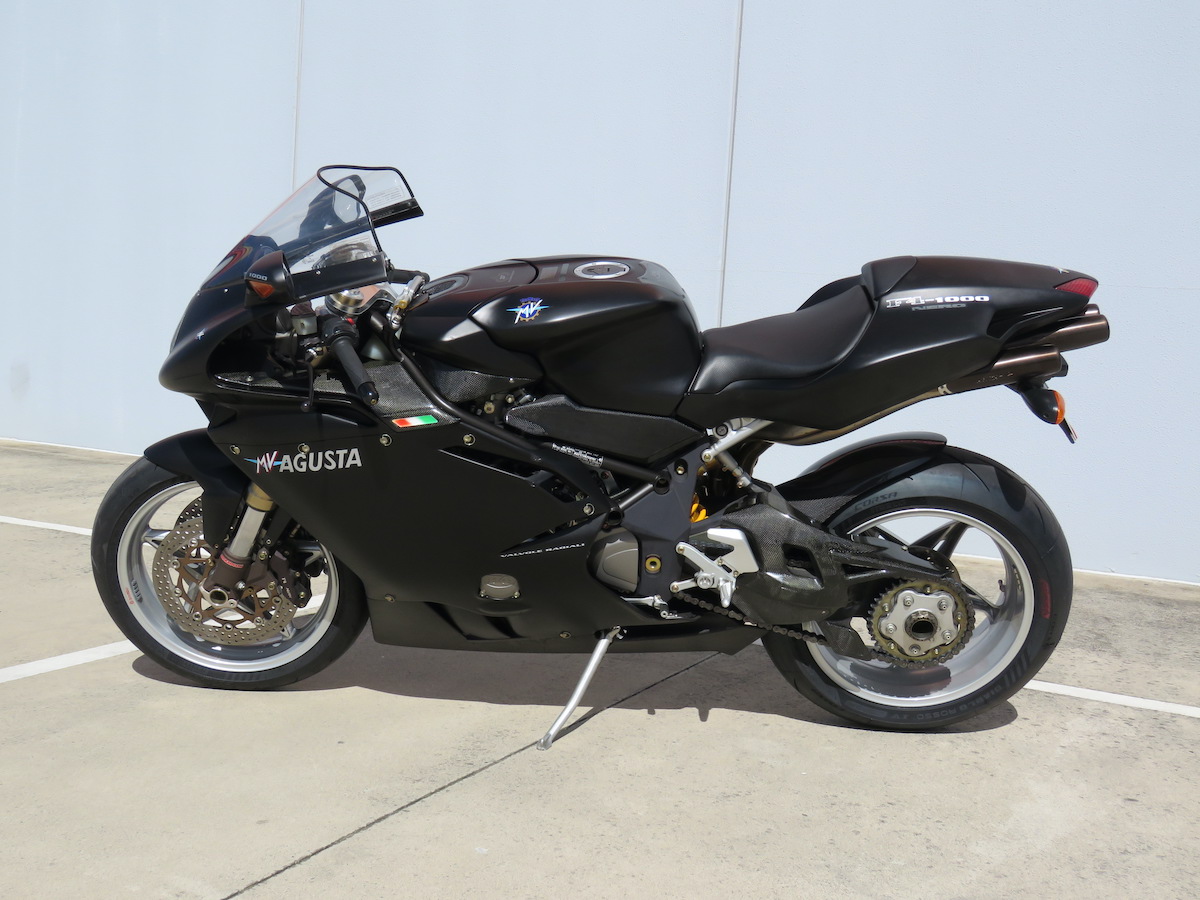
See our MV Agusta
F4 750 profile
-------------------------------------------------
Produced by AllMoto abn 61 400 694 722
Privacy: we do not collect cookies or any other data.
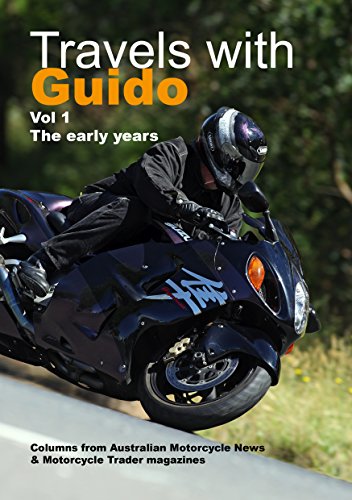
Archives
Contact




